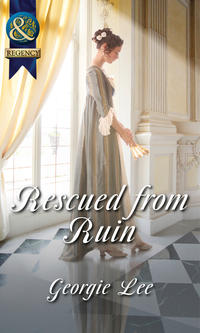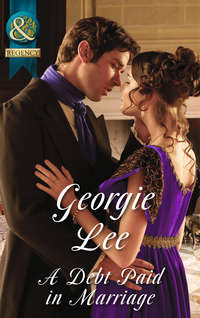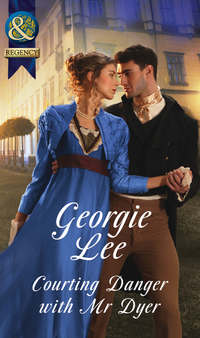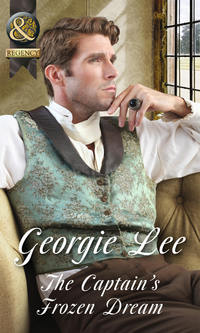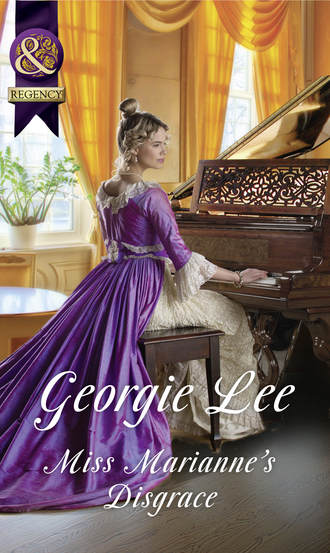
Полная версия
Miss Marianne's Disgrace
Marianne shifted on her feet. Lord Falconbridge’s gratitude made her as uncomfortable as the hug. A notorious rake she’d once thought as hard as Madame de Badeau, love had changed Lord Falconbridge. What might it do for her? She wasn’t likely to find out. No man worth his salt was going to push past the rumours and gossip to ever get to know her.
‘Marianne, guess what? Theresa is expecting again. Some time in the spring,’ Lady Falconbridge announced.
‘How marvellous.’ Despite Theresa being one of Marianne’s only friends, the good news stung. It illustrated once again the love and happiness Marianne would never enjoy. ‘I’ll write to her at once with my congratulations.’
She fled the room before the envy and heartache found its way to the surface. She made for the sitting room downstairs near the back of the house, eager to reach the pianoforte and the smooth black-and-white keys. Once inside the room, the view of Lady Ellington’s prized rose garden through the far window didn’t calm her as it usually did. She withdrew a red-brocade composition book from the piano bench. The spine creaked when she opened it. She flipped through the pages and the notes bounced up and down on the staffs, punctuated every few lines by a smudge of ink or her fingerprint. It was her music. It had comforted her during the long, lonely hours at Madame de Badeau’s, and afterwards, before her life had settled into the even cadence of Lady Ellington’s dower house.
Selecting her most recent composition, she propped the book up on the music stand and lifted the cover over the keys. Wiggling her fingers, she rested them on the ivory until it warmed. Then she pressed down and began the first chords, wincing at each wrong note until she settled into the sweet and mournful piece. Through the adagio, she concentrated on the shift of the foot pedal and the strength with which she struck each key and how long she held it until sweeping on to the next. The black notes tripped along in her mind, memorised from hours of practice.
Finally, the piece reached its slow, wailing end and she raised her hands. The last notes vibrated along the wires until they faded away. Blinking through wet lashes, her cheeks and neck cold with moisture, she studied her hands. They were smooth and limber now, but some day they’d be wrinkled and stiff and here she’d be, with any luck, living under the protection of the Falconbridge family, the scandals as forgotten as she.
She wiped the tears from beneath her chin and turned the page to one of her slightly less sombre compositions. Crying wouldn’t do any good. If Lady Ellington didn’t think it was hopeless, then perhaps it wasn’t. If nothing else, there was always Lord Bolton.
* * *
‘There’s a fortune to be made here, Warren, can’t you see it?’ Rupert Hirst, Warren’s brother-in-law, paced back and forth across the rug in front of Warren’s desk. A little wrinkle rose up in the patterned carpet where his heel dug in to make the turn.
Warren frowned. If Rupert paced long enough, he’d wear a hole in the thing and then it would be another repair for Warren to pay for. The workers were behind enough already, despite the rush to finish before the good weather ended, and the costs were increasing by the day. If Warren didn’t write this book and get it to William Berkshire, his publisher, and collect the remainder of his advance, there’d still be holes in the roof come the first snow.
Lancelot, Warren’s red Irish setter who chased sleep more than he did birds, watched from where he lay on the hearthrug, not bothering to rise.
‘I can see the potential. I can also see myself losing a great deal of money if your optimism proves unfounded.’ Which wouldn’t be the first time. Despite his brother-in-law’s best efforts, Rupert hadn’t made a go of his last venture and it had faltered. Even his love for Leticia had proved destructive in the end.
Warren twirled his pen in his fingers. It wasn’t fair to blame Rupert. He’d loved Warren’s sister. If only Mother Nature had been so enamoured. The cruel witch had turned her back on Leticia and her poor little babe, failing to answer even Warren’s entreaties for help as he’d struggled to save them both.
‘I’m committing most of my small inheritance to hiring the best captains and ships to import the tobacco, and securing the crops of numerous farmers, so it can’t fail. I won’t let it,’ Rupert protested, frustration and desperation giving his voice an unappealing lilt. ‘I need your backing, not just financially, but your name. It will attract others and once they’ve invested or become buyers, the risk to you will be minimal.’
‘But not non-existent.’ Warren gathered up a small stack of books from the corner of the desk and carried them to the dark wood bookshelves lining the lower floor of the study. He examined the spines in the bright daylight filling the room from the row of leaded glass windows behind his desk. At least the sun saved him the expense of lighting candles. ‘The repairs to Priorton are proving expensive. I can’t afford to risk money on a business venture.’
Warren climbed the curving staircase to the balcony and opened a glass case and deposited a thick medieval text inside. If he could write the next damned book he might be able to take a chance. The manuscript was already months overdue. Mr Berkshire was a friend and a patient man, willing to wait for the next great sensation from Sir Warren Stevens, but he wouldn’t wait for ever. Neither would Warren’s readers. They’d move on to another emerging novelist if he didn’t produce something soon.
‘If my plan to import the new tobacco succeeds, you’ll have plenty of money,’ Rupert persisted.
‘And if it doesn’t, it will ruin my financial standing and my reputation.’ Warren looked over the polished wood banister at Rupert. His company was tolerable enough and his vices non-existent, but there was nothing special about him. He still couldn’t understand what Leticia had seen in him. ‘I have no wish to go from celebrated author to hated hawker of bad investments.’
‘But I need your support. I think it’s the least you can do, considering.’ The words came out low with the edge of a growl. Even Lancelot raised his head at the sound.
‘Careful, Rupert.’ Warren gripped the banister, setting hard on his arms as he leaned forward, staring the man down. ‘She was as much my sister as she was your wife.’
‘I’m sorry. I didn’t mean to imply anything or to sound desperate, but some days I feel so lost without her.’ He hung his head, raking one hand through his thinning dark hair, the simple gold wedding band glowing on his finger. ‘If she were here, I’d have her support and it would make it easier to deal with the setbacks and disappointments.’
Warren eased his grip on the banister at the anguish in Rupert’s words. Warren had lost his greatest supporter, too, when Leticia had died. She’d edited and read all of his manuscripts, telling him where they were best and what could be improved, and she’d believed in them, and him, even when he hadn’t. Not even Mr Berkshire had matched her enthusiasm for his work and now she was gone.
He slid his hand over the banister, then took the spiral staircase step by slow step. He could almost hear Leticia begging him to help Rupert. She’d begged Warren to invest in Rupert’s first business after they were engaged so he could make enough to allow them to marry. Warren had been as wary of that venture as he was this one, but Leticia had stood in front of his desk, like Rupert did now, pleading with him to change his mind, to help Rupert and to make her happy.
He approached his brother-in-law, the differences in their height making Warren look down on the slender man. Whatever Rupert’s shortcomings, Warren had taken him on when he’d given his consent for the marriage. If Rupert did manage to make a go of things, Warren could make a great deal. He’d need it, especially if he failed to deliver this next book or it didn’t sell as well as the previous one. Without Leticia here to edit it, it might not. Since her death, his stories had all but deserted him.
‘All right, tell me how much you need and I’ll discuss it with my man of affairs. I can’t give you everything you’re asking for, but perhaps I can do something.’ The key was not to risk too much.
Rupert snatched up Warren’s hand and shook it. ‘Thank you, Warren, you don’t know how much this means to me.’
He did. Mr Berkshire had taken a chance on Warren’s first manuscript ten years ago, paving the way to Priorton and Warren’s title. He hoped Rupert enjoyed the same success. If not, it would be the last time Warren helped him.
‘Warren?’ His mother appeared at the door, a letter in her hand. Lancelot roused himself and trotted to her, his jingling collar joining the faint echo of hammers and saws trickling down from the upper floors. ‘Lady Ellington and Miss Domville are coming to tea tomorrow. I’d like you to join us.’
Miss Domville.
Warren undid his loose cravat and twisted the ends back into an uncooperative knot. To say he was startled when he’d turned to find her in the dining room last night was putting it mildly. He couldn’t have been more stunned if she’d marched in claiming he’d fathered a child. Since then, to his ire, he’d thought more about her than the heroine of his latest manuscript. Her sharp cheeks highlighted by the fair hair pulled into tight ringlets at the back of her head, the blush of youth across the sweep of her skin and the azure eyes watching him with suspicion, had proved fascinating. She’d dressed modestly, with a higher bodice than even a vicar’s daughter, but the raw appeal of her curving body had been jarring—just like her request for his help.
Shame made his cravat tighter and he pulled loose the knot again. Not even the other gentlemen’s disapproving and less polite scrutiny had been enough to shake her determination, but his near refusal had. When he’d hesitated, it had sent a whisper of fear through her clear blue eyes before her determination had overcome it. She’d been like the most stalwart of captains, unwilling to let anything stop her from achieving her goal, not even a ridiculous sense of propriety. If only all people possessed the same judgement and resilience. The Admiralty certainly didn’t, heaping pay and praise on physicians who did nothing but hide from illness onshore while the underpaid surgeons choked below deck treating the wounded men.
Warren gave up on the cravat and allowed the loose linen to dangle around his neck. He shouldn’t have been so quick to leave Miss Domville last night. She’d caught his struggle with the past and despite her own concerns she’d reached out to him. Instead of thanking her for her sympathy, one people rarely offered him, he’d shoved her away. Despite his misstep, it was probably for the best given his inability to stop thinking about her. He didn’t have the time or money for anything as expensive as a wife and family, even if the woman possessed means. He wasn’t about to make his fortune by marrying it. He’d earn it as he always had, and as a man should, through his own industry.
‘Warren, you can’t be rude to Lady Ellington.’ His mother shook her head at him, her lace cap fluttering over her dark hair which was more grey than chestnut now. ‘Her nephew is a marquess who could do a great a deal for you and your career.’
‘I have the Prince for a patron. I hardly need a lowly peer,’ he teased with a grin she matched with a slightly more serious one as she patted Lancelot on the head. ‘I have too much work to do. I’ll rely on you to speak glowingly of me and cultivate her support.’
‘So you won’t come for Lady Ellington, I understand. But I thought for sure you’d want to see Miss Domville.’ His mother was far more tenacious than Rupert, who’d watched the conversation with interest, but her company much more pleasurable
‘Not if you want to maintain your good reputation,’ Rupert snorted now.
‘She’s a very charming young lady,’ Warren’s mother corrected, silencing Rupert’s chortles.
He didn’t respond and Warren didn’t press for the story behind his snide remark. Gossip didn’t interest him and he hated encouraging the spread of it by asking for whatever tale Rupert had heard.
‘Now, if you’ll both excuse me, I have chapters to write.’ He opened his arms and caught his mother by the shoulders and gently guided her to the hallway. He waved Rupert over and Rupert jogged forward to join them like a summoned spaniel.
‘Perhaps you could discuss my business venture with Lady Ellington,’ Rupert near panted. ‘If she or the Marquess could be convinced to invest—’
‘One thing at a time, Rupert.’ He clapped him on the back, unwilling to solicit the county on his behalf, not when he could devote the same time and energy to selling his next book. Assuming he could write it.
‘Come, Rupert, I’ll show you the new plasterwork in the sitting room before you return to London.’ His mother took Rupert’s arm and led him into the hallway as Warren slid the study door closed.
He sagged against the heavy oak. Lancelot’s eyebrows shifted as he watched his master.
Chapters. Warren had barely written a page today, much a less a whole chapter. It wasn’t for lack of trying. His desk and the floor around it were littered with discarded papers full of useless words for pointless stories of boring characters that went nowhere and would make him no money.
Warren dropped into his chair and stared at the silent and cold collection of books and medieval manuscripts surrounding him. In the midst of it all, he felt as lonely and isolated as he had aboard ship when no one had understood his struggles or his dreams for a different future, except Leticia. And then he’d killed her.
He snatched up his pen and held it over the paper, determined, as then, to forge on. He wouldn’t allow his doubts or guilt to hinder him, not with so much depending on his continued success and the money it would make him. The half-filled page taunted him from the blotter, along with the incessant banging of hammers from somewhere overhead. Pressing the nib to the paper, he wrote one word, then another, determined to push through. He had no choice, there was no one else who could do it or save him.
Chapter Three
Sir Warren still hadn’t made an appearance by the time the butler removed the tea service. Mrs Stevens said he was busy at work and couldn’t be disturbed. More than likely he was avoiding Marianne and her damaged reputation like every other gentleman of quality. The same couldn’t be said of the large portrait of him hanging over the fireplace. It was of Sir Warren at his desk, an open book balanced on his knee, the pen in his hand poised over what must be his next great creation. Mr Smith used to devour Sir Warren’s novels of medieval knights and ladies. Once, during a snow storm, when the family had been stuck inside for three days, he’d read a novel aloud. Marianne had only half-listened. Historical novels were not to her taste.
It wasn’t the open book balanced on his knee or the manuscript which kept bringing her back to the portrait. It was Sir Warren’s posture, the subtle way his body turned, his attention focused on the distance instead of the viewer. His brow shaded his green eyes, stealing their light. The haunted expression hinted at some threat just beyond the frame, something only he could see, like whatever it was that had troubled him at Lady Cartwright’s. It undermined the confidence in his firm grip on the book and reminded her of his pained expression when he’d written out the laudanum recipe after helping Lady Ellington, before he’d darted away from her.
Irritation more than the warm autumn day made her tug at her high collar.
‘How we must be boring you with all our talk of Italian landscapes,’ Mrs Stevens apologised from across the round tea table.
Marianne jerked her attention to Mrs Stevens’s kind round eyes, her son’s eyes, and shook her head. ‘No, not at all.’
‘Liar,’ Mrs Stevens teased. ‘When I was young I used to hate sitting with old ladies and listening to them talk. Lady Ellington tells me you play the pianoforte. We have a lovely Érard in the music room. The man who sold us the house said it was once in the Palace of Versailles, but I’m not sure I believe him.’
‘A French-made Érard!’ Excitement filled Marianne more than when the carriage had approached the house, before it had become obvious Sir Warren had no intention of joining them. ‘I used to play one at the Protestant School in France. Do you play?’
‘Oh, heavens, no.’ She laid a thin hand on her chest. ‘I hate to think of a fine instrument going to waste. If you’d like to try it, you may. It’s just down the hall in the music room. Third door on the left.’
‘May I?’ Marianne asked Lady Ellington, as eager to see the instrument as to escape the staring portrait.
Lady Ellington slid a sly glance at Mrs Stevens whose eyebrow arched a touch. ‘I don’t see why not.’
Marianne threw her companion a questioning look, wondering what she was up to. Lady Ellington ignored it in favour of adjusting the clasp on her diamond bracelet. The ladies must be eager to discuss something more salacious than Italian landscapes out of her hearing. Whatever it was, Lady Ellington would tell her about it later. Her companion didn’t see the need to shield her from reality, not after Marianne had learned so much at Madame de Badeau’s.
Marianne rose and shook out the skirt of her dress. ‘Then I’d be delighted to play.’
‘Wonderful.’ Mrs Stevens beamed as Marianne made for the hallway. ‘Leave the door open so we may hear your beautiful playing.’
Marianne stepped into the long main hall running the length of the front of the house. The faint dragging of a saw across wood and the thud of hammers carried down from somewhere upstairs. She headed left, past the large marble fireplace situated across from the main door, a medieval relic left over from the house’s days as a priory. Mrs Stevens had told them something of the house’s history over tea. Old swords and helmets dotted the panelled walls, creating a more menacing than welcoming effect in the low-ceilinged entrance hall with its thick exposed beams.
She followed the neat line of black-marble diamonds inlaid in the slightly uneven floor, counting the solidly spaced doors with their rounded tops and thick iron handles.
When she reached the third door on the left, she slid one of the wide panels aside, stopping as Sir Warren’s eyes snapped up from his desk to hers. The troubled eyes from the portrait. They widened with shock before crinkling with annoyance, then embarrassment. In front for him were books arranged in an elaborate set of triangles and balanced against one another like a house of cards.
‘You should have knocked.’ Sir Warren jumped to his feet and rounded the desk. The large red dog sitting beside him raised its hindquarters in a stretch before trotting past his owner and up to Marianne. ‘I was working.’
‘Yes, it’s quite a labour.’ She leaned to one side to peer around his solid chest at his creation, ignoring the flutter in her stomach at this unexpected meeting and the cutting realisation he had been avoiding her. ‘Is it a castle or a barn? I can’t tell.’
‘It’s a castle.’ Amusement replaced the flush of anger. ‘I’ll have you know, half of all writing is procrastination.’
‘Then it appears you’re making great progress.’ Marianne tapped the dog lightly on the head with her fingers, then waved him away. He obliged, wandering over to the hearth rug and settling down on the spiral weave.
‘If only I were.’ He dismantled his castle and stacked the books in two neat piles. Then he faced her, leaning back against the desk and admiring her with more amusement than censure. His coat was missing and the wide sleeves of his shirt were flecked with small dots of ink. Dull black boots that wouldn’t pass muster in London covered his calves and feet, and around his neck his cravat sat loose and crooked. ‘Rather bold for a young lady to be wandering alone in a gentleman’s house.’
‘It isn’t the first time I’ve been bold in the presence of a gentleman.’ She approached him, determined to appear confident and collected and reveal nothing of the thrill racing through her at his unguarded humour. It would end soon when he decided it was best to not be alone with her and bolt off to see to some other matter in another part of the house.
‘Nor do I suspect it will be the last.’ Not a speck of derision marred his smile as he stroked his strong jaw. The play of his fingers along his chiselled chin, his sure stance and the curious way he regarded her proved as captivating as the time she’d watched the workers in the Falconbridge Manor fields in the evening, their shirts discarded as they’d swung their scythes. She could picture him among them, the gold sun across his back, his thick arms swinging the blade, the honey skin glistening in the low light. Marianne adjusted her collar, stunned by her suddenly lurid imagination. This wasn’t the way she normally regarded men. It was dangerous.
‘I’ll have you know I wasn’t wandering, but searching for the Érard. Mrs Stevens told me it was in the music room, the third door on the left.’ She couldn’t have counted wrong. Three was not a difficult number.
‘The music room is the second door on the left.’ He cocked his thumb at the wall and the arched door set snug between two bookcases. ‘There’s another entrance through there, if you’d like.’
‘My apologies then. I’ll leave you to your work.’ And make sure it was she and not he who did the quick leave taking this time.
‘No, please, stay.’ He moved to place himself between her and the library door. The dry tang of dusting powder clung to him, punctuated by the faint richness of cedar. It struck her as strongly as his state of undress. It was too intimate for a woman of Marianne’s undeserved reputation.
‘No, I must go.’ She tried to step around him, but he moved first, agile for a man of his robust build. The dog watched them as though he were bored.
‘Please, I’d like it if you’d stay.’
‘Why?’ He wasn’t the first gentleman to try and corner her alone in a room. If he dared to touch her, he also wouldn’t be the first to feel her knee hitting his unmentionables. She’d learned fast how to defend herself against the lecherous gentlemen who used to haunt Madame de Badeau’s. She’d had no choice. The awful woman hadn’t lifted a finger to protect her.
‘I wish to apologise for leaving you so abruptly at Lady Cartwright’s. You were concerned about me and instead of thanking you, I was rude. Please, forgive me?’
She blinked, stunned. No one, not even Madame de Badeau when she’d been dying of fever in Italy, had ever asked for Marianne’s forgiveness. To Hades with his state of undress, she’d stay for this and savour the moment. It would probably be the last time she’d receive an apology from anyone outside Lady Ellington’s house.
‘It’s been quite some time since I’ve attended to a patient,’ he continued in the face of her silence, something of the shadow from the portrait darkening his expression. ‘It brought back a number of painful memories and made me forget my manners.’
‘What memories?’ She didn’t usually pry. People were all too eager to tell her their business and everyone else’s without any entreaty, but she couldn’t stop herself from asking. He hadn’t rushed to condemn or insult her like so many others did. It made her curious and less wary about him than she should have been.
The bang of a dropped board echoed on the floor above them. She thought he wouldn’t answer, but to her surprise, he did.
‘During my time as a surgeon in the Navy, I saw horrors so awful, if I wrote them into my novels, readers would think I’d exaggerated for titillating effect.’ He snapped his fingers and the dog strolled to his side. He dropped his hand on the dog’s head and ruffled the silky fur. ‘For a year or two after I left the Navy, the memories used to trouble me. Usually it would happen at night, but once in a while a familiar smell or something equally trivial would bring them back during the day. Eventually, it stopped and I thought myself past such episodes, but it happened again when I attended to your friend. It’s why I left so quickly. I didn’t wish to explain it to you, or anyone else. It’s not something people outside my family are aware of, or something I’m proud of.’


